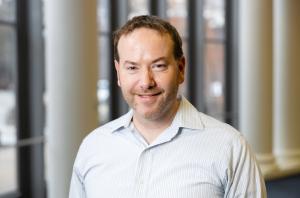
University of Virginia engineering researchers created a new artificial intelligence tool to speed up the search for disease treatments, identifying promising drugs to prevent heart failure.
Because developing new drugs can be costly, the team hopes their new AI tool, LogiRx, can save time and money.
“There are still a huge number of different chronic and acute diseases that affect many people, including heart disease, cancer and infectious diseases, and it’s very challenging for the field to develop new drugs,” said Jeff Saucerman, a UVA professor of biomedical engineering and one of the researchers. “The success rates are very low and often take 10 to 15 years, start to finish.”
Former UVA doctoral student Taylor Eggertsen, who now works in the pharmaceutical industry, led a team of researchers from UVA and the University of Colorado who found a compound to prevent heart failure by decreasing instances of detrimental cardiac growth, called hypertrophy. Using their AI tool, the researchers investigated 62 drugs and identified seven with potential benefits. The findings were published in the Proceedings of the National Academy of Sciences earlier this year.
“We were focusing in particular on heart muscle cells, which grow as heart failure progresses,” Saucerman said.
The study collaborators identified about 100 small molecules in potential drugs and used their tool to winnow the list.
Saucerman said the AI tool identified Lexapro — a drug 30 million Americans take, mostly for anxiety and depression — as a promising treatment.
“We then tested these computer predictions in heart cells and then in preclinical models,” he said. “Analyzing a Food and Drug Administration patient database and UVA Health electronic health records, we saw in both patient populations a lower incidence of this overgrowth of the heart in patients with either depression or anxiety who are prescribed Lexapro.”
One of the study’s limitations, according to Saucerman, is that it relies on observational data. He hopes to expand to small-scale clinical trials in the future, testing the effects of drugs like Lexapro on the heart.
Saucerman teaches a range of courses at UVA, including Computational Biomedical Engineering, where undergraduate students who have a background in programming and biology can “bring these things together to analyze complex biomedical data to make computer models of biomedical systems.”
Saucerman and biomedical engineering colleagues Timothy Allen, Jason Papin and Shayn Peirce-Cottler teach another course, open to both undergraduate and graduate students, focusing on “state-of-the-art methods for computer modeling of the communication networks inside and between cells,” Saucerman said.
Drawing from his research, he guides students in using these models to identify drugs that could target different diseases.